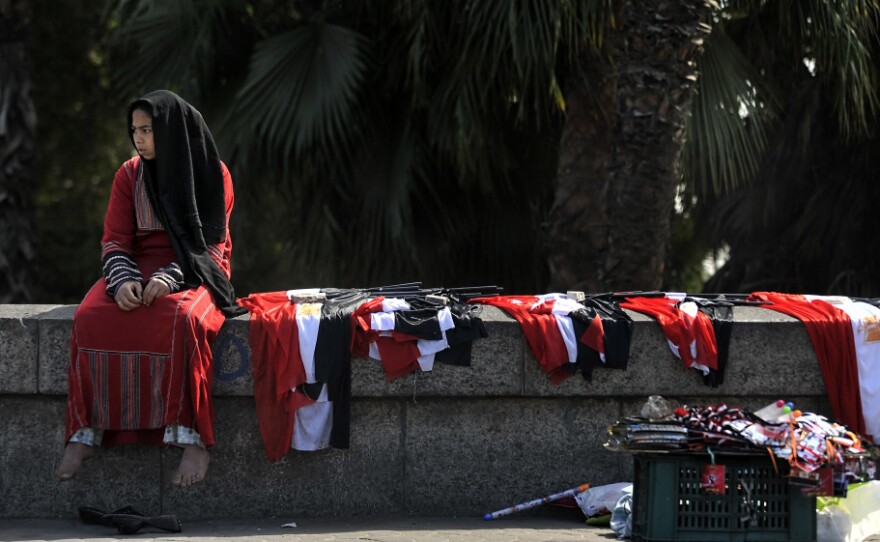Egypt's military rulers are charging ahead with a referendum scheduled for later this week that will determine who can run for president of the largest country in the Arab world.
People are being asked to vote on amendments to Egypt's controversial constitution. The referendum is widely opposed by the leaders of the country's revolution, as well as emerging presidential contenders.
Nobel laureate Mohamed ElBaradei is one of many opposition leaders calling on people to vote "no" on Saturday. On Twitter, he calls it an insult to vote in a referendum that, in effect, keeps former President Hosni Mubarak's constitution as the law of the land, even temporarily.
"Why rush at the expense of democracy?" ElBaradei asks.
Mohamed Atiya, who heads the army-appointed committee supervising the referendum, argues the amendments were drafted by constitutional experts. At a news conference Tuesday afternoon, he called the vote a key step to transforming Egypt into a modern democracy.
"All eligible voters should participate. It doesn't matter whether the measures are accepted or rejected. Although if they are rejected, the Supreme Council of the Armed Forces will have to fill the void," Atiya said.
That means Egypt's military rulers could end up drafting their own set of rules as to who can run for president and Parliament in the coming months.
And that's not acceptable to ElBaradei, or to the youth leaders of the revolution that forced Mubarak out of office.
Some Amendments Appealing; Others Spark Concern
Voters are being asked to approve or reject nine amendments to the current constitution. Some of the provisions are appealing to Egyptians — such as limiting future presidents to a maximum eight years in office and limiting their power to impose a state of emergency to six months before having to put it to a public vote.
Mubarak, by comparison, maintained the intrusive and hated emergency law for all of his 30 years in office.
But opponents say they are worried about other provisions, like those determining who can run for office and day-to-day powers of the president. They claim the measures unfairly benefit Mubarak's former colleagues and a handful of organized political movements, like the once-banned Muslim Brotherhood.
"Many people, when they had a close look, don't like what they see," says Khaled Fahmy, the history department chairman at the American University in Cairo. "So we are at a bind. We want the army to get out of the picture as soon as possible. The army appears to want to do the same thing — they don't want to stay in power. That is why they are rushing these constitutional amendments."
'Everything Is So Rushed'
Fahmy says two recent opinion polls conducted by the Egyptian army show the measures are likely to be voted down. He adds few Egyptians believe the referendum will be free and fair given widespread allegations of ballot tampering and voter intimidation in November's parliamentary polls.
"One of the basic problems with the previous system was the electoral system itself and the rigging in the vote and the very lists of voters that were tampered with," he says. "We don't know where to go to actually vote and cast our ballots. None of this is clear and everything is so rushed, and people are panicking."
Nevertheless, the army and transitional government show no signs of wanting to delay the vote.
Atiya, the referendum chairman, says more than half of Egypt's 80 million people are eligible to vote. He adds tens of thousands of Egyptian soldiers and police officers will provide security at polling stations whose locations have yet to be announced.
Copyright 2022 NPR. To see more, visit https://www.npr.org. 9(MDAzMjM2NDYzMDEyMzc1Njk5NjAxNzY3OQ001))







